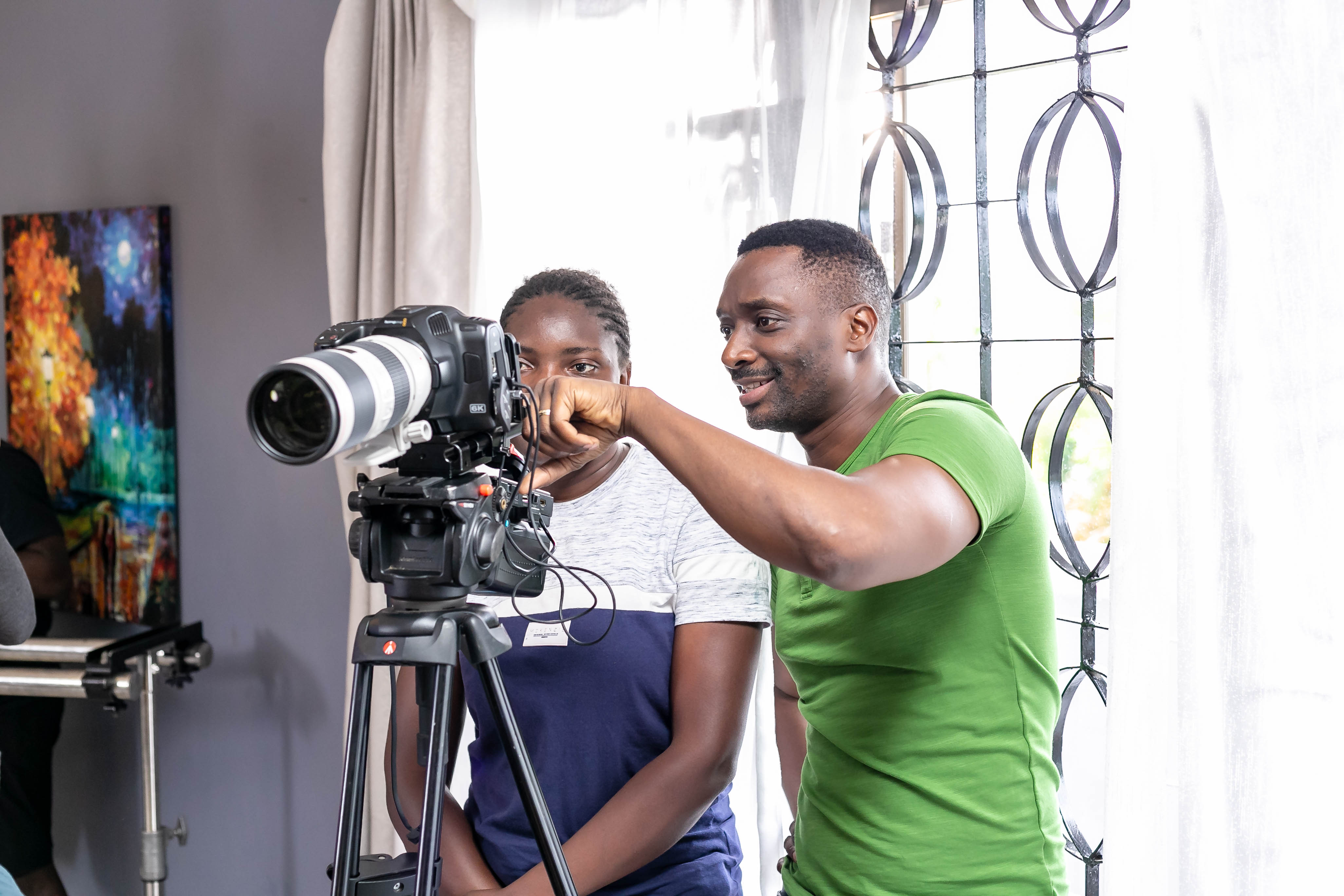Today, Mathew Nabwiso is the producer whose show is arguably the most acclaimed Ugandan series on DStv, but it wasn’t always like that.
The actor, director and producer behind the Sanyu drama series says he had to sell all his assets to bet on film. And that for the many years that followed, filmmaking was a loss-making venture.
“We continued the journey of making film up until this day. Film has paid us. We’ve managed to put food on the table, built a house, paid school fees. We live, eat, drink film. We just had to take a leap of faith,” Nabwiso said in a recent interview with NTV’s Mwasuze Mutya.
Filmmaking is a capital-intensive venture. Largely due to the cost of equipment required for production as well as the human resources and time needed to execute a project.
To raise this capital, Mathew had to sell the assets he had toiled so hard to own. Among these was 20 acres of land, 200 goats and a rabbit farm he was running.
He owned a Noah car which was also forfeited by money lenders. He recounted how he and his wife Eleanor got to a point where they couldn’t afford the fare to use a taxi.
“I remember one particular day when my wife was breastfeeding. We forewent lunch and gave the little spaghetti we had to our elder son. The portion he couldn’t finish is what we kept and gave him as dinner. I have never been so hungry in my life. All my friends had blamed me for selling my property to venture into film. I could no longer call them,” Mathew told Faridah Nakazibwe in the interview.
That night, someone gave him Shs 1,500 which he used to buy a Rolex. He and his wife shared that Rolex for dinner. “But I said a prayer. For God never to put me into that position ever again. And after that night, things changed. We continued the journey of doing film until today.”

“Someone will look at us today and assume we were just lucky but we sold everything we had and invested in film, and we made losses. And continued to do it because we had decided this was the journey for us,” the director said.
He attributes the fruits that have come out of the process to hard work, passion, focus and consistency.
Incidentally, he says their financial breakthrough can’t be attributed to any particular film project.
It was a culmination of the body of works they produced over a period of time and the positive PR that earned Nabwiso Films attention from organizations that were in need of content, especially documentaries.
“The films opened many doors for us with NGOs and some government ministries. We started to do lots of documentaries for UN agencies. We did so many documentaries and TV commercials and that’s how the money started coming in.”
Mathew also points out the importance of consistently doing good work, which was how they managed to maintain the clients they got.

“We would rather make a loss on a production than do mediocre work. Because the day you get a client is the day you start to lose them,” he said.
Since 2006 when Mathew cut his teeth in filmmaking with his first (lead) role on Battle of Souls (a supernatural Ugandan thriller directed by Matt Bish), he has metamorphosed remarkably.
He would later in 2010 star in another Matt Bish-produced film, Good Catholic Girl depicting Ahmed (Mathew Nabwiso), a villainous butcher interested in a strict Muslim customer’s daughter yet she loves someone else – a lowly carpenter who isn’t Muslim. Ahmed tries to rape her, and when she resists, he kills her. But, her lover avenges her.
But it was really the NTV Uganda hit drama series – The Hostel – that catapulted him as an actor. It’s on this same show that he met his wife Eleanor.
The success that The Hostel came with inspired the couple to form a film production company – Nabwiso Films.
Over the years, the production house has created a number of productions among them Rain, Hashtag Family, Prickly Roses, Bed of Thorns, Karamoja, When You Become Me and others. With numerous awards under their belt, notable among them Africa Magic Viewers’ Choice Award, London Eye international Film Festival Award, London Art House Film Festival Award and Uganda Film Festival Awards. He acknowledges that the film landscape in Uganda has greatly evolved in the last 15 years.

“When I joined 15 years ago, the most I would do as an actor was act in one movie or two. If you are too lucky, you would act in like 3 of them a year, and the most you would make was Shs 150,000 or Shs 100,000, so you would make like sh450,000 a year. Today, the story has changed; people actually act for a living,” Mathew has previously told Pulse Uganda in an interview.
“Today, you will find that there are so many commissioned projects, like the current show I am doing, Sanyu. People are on payroll, and they expect a salary at the end of the month. Today, for the first time, filmmakers can walk into a bank and apply for a loan. People can now buy cars, build houses, and start businesses with money from acting. So, for me, that is growth.”
Today, Sanyu (now in its third Season) which was commissioned by Multichoice enjoys massive popularity of all the shows that feature on DStv’s and Showmax’s slate.

Uganda’s film industry is finally at take-off stage, largely attributed to the rise in demand for content which has for a long time been a hindrance.
While producers poured money into productions, TVs were not willing to pay the right value for this content and neither were Ugandan stories pulling the audience to cinemas. The lack of market also meant filmmakers were unable to produce work that matches the quality of foreign content.
Most producers that have worked on commissioned projects and started out hiring equipment have since managed to acquire their own assets, attesting to the economic viability of the filmmaking industry. The entry of streaming players like Netflix in the Africa market too has plugged the content demand gap on top of offering a meaningful price offering to producers.
For example, for producing Katera of the Punishment Island (a Netflix original), Loukman Ali (The Girl in the Yellow Jumper) bagged Shs 92.5m (for being among the 6 finalists in the ‘African Folk Tales Reimagined’ project) on top of a production grant of Shs 277.5m to create their short film with a local production company.
This level of investment in Ugandan filmmaking was not possible 10 years ago.








